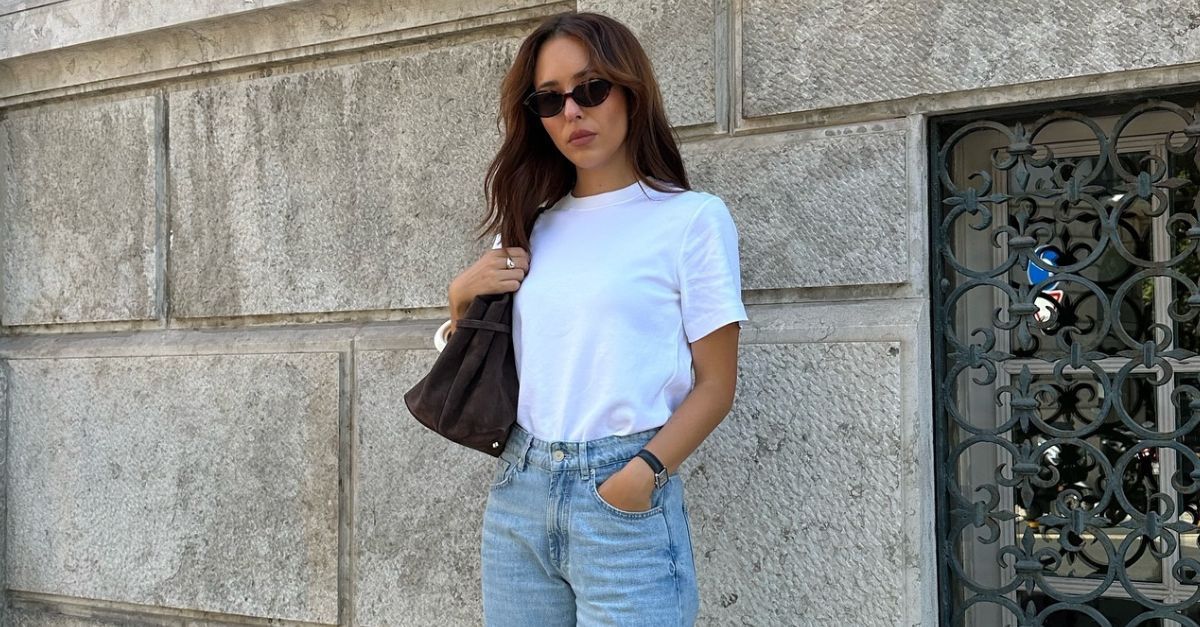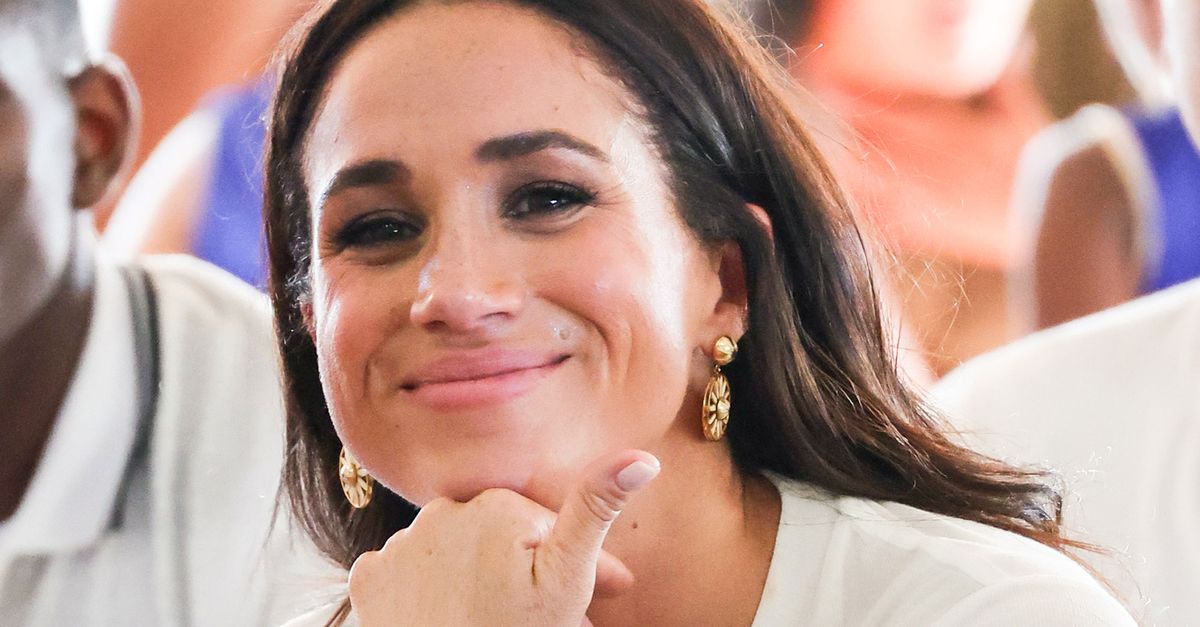The Right Sunglasses for Your Face Shape
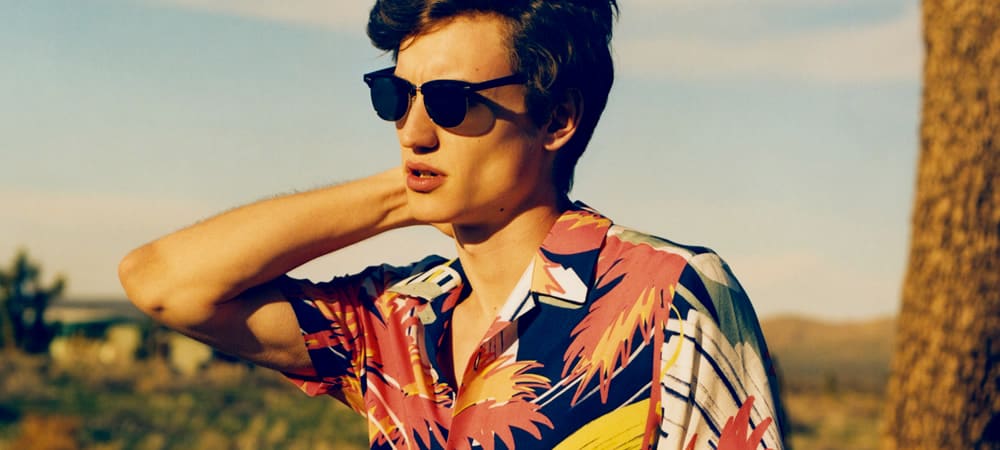
Most men don’t own a vast number of accessories. Often it’s a case of the bare necessities: a watch (so we’re not late), a scarf (so we don’t freeze in winter), a tie (so we don’t look scruffy) and a bag (so we don’t overstuff our pockets).
However, unless you’re a man who enjoys forcibly squinting at the sun (or, indeed, damaging your eyes with year-round UV rays), sunglasses fit well and truly into the essentials category.
A decent pair of shades not only protect your eyes, but they can also be used to hide a multitude of sins (okay, mainly hangovers), finish off an outfit, or create a style statement all of their own. So finding a pair that is just right is extremely rewarding. Of course, this all hinges on getting your head around face shapes and which sunglasses styles suit each. Before breaking out into a sweat, use this guide to shed some light on the process.
The Right Sunglasses For Your Face Shape
Sunglasses are not just a style statement – they can attract or repel, be a mirror or a shield. If the eyes are the windows to the soul, then perfectly suited sunglasses aptly deserve to be called ‘shades’.
In the hunt for the perfect pair of sunglasses, it’s essential to first identify the frames that complement your face shape. While a handful of guys will be able to wear any they like, some will be completely off-limits for others.
Sunglasses For Oval Face Shape
An oval is considered the holy grail of face shapes. Those lucky enough to have a head that is longer than it is wide and with a rounded jaw should try not to look too smug when we say you can wear pretty much any frame (and any hairstyle) out there.
The only advice for oval face shapes (aside from avoiding novelty styles covered in Christmas trees or the numbers of the current year) is to sidestep frames with arms that hang too low, as this will elongate the face further.
Key Styles: Anything goes
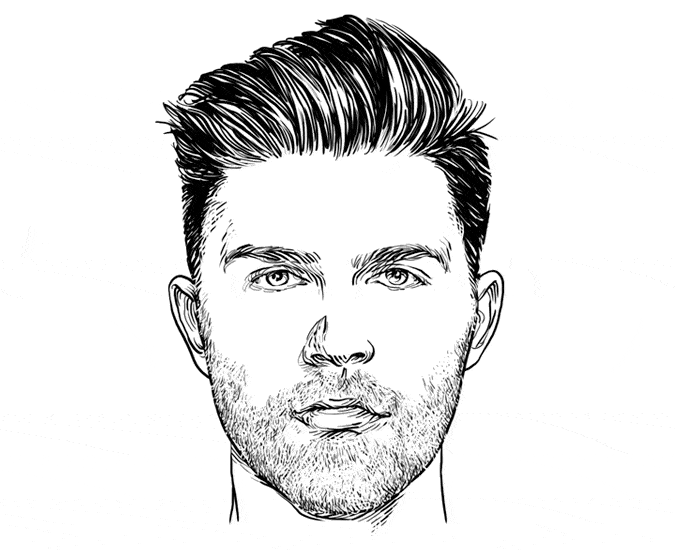
Sunglasses For Square Face Shape
As a general rule, the shape of your sunglasses should be opposite to the shape of your face. This helps to create balance by either softening harsh features or creating definition.
For example, a strong jawline and wide cheekbones add up to a square face. Therefore, in this case, rounded frames such as aviators and John Lennon-style vintage sunglasses look better than angular designs with sharp lines.
Key Styles: Round frames, aviators, Clubmasters

Sunglasses For Round Face Shape
Using the same rule of choosing a frame in an opposite shape to the face, guys with round faces should opt for sunglasses that create as much definition as possible.
To make your cheeks appear slimmer, choose a style with a strong brow line in a size that is slightly wider than the head itself. Angular glasses will also help to elongate your temples and lengthen your face.
Key Styles: Wayfarers, square frames, Clubmasters
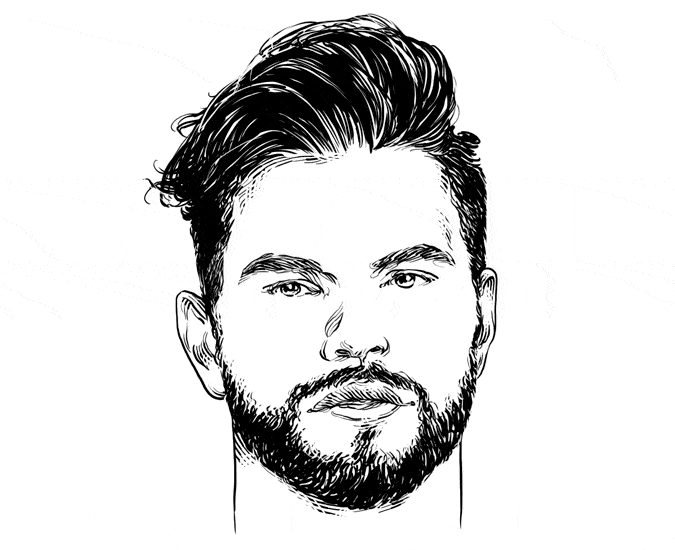
Sunglasses For Long/Rectangular Face Shape
To give a rectangular face a sense of balance, seek out glasses that add width to the long shape.
Round or square frames work well here, but make sure you go for larger, even slightly oversized styles.
Key Styles: Wayfarers, D-frames, Clubmasters

Sunglasses For Heart Face Shape
Of all the faces, a heart shape is one of the most difficult to frame. Because a narrow chin is countered by a wider forehead, it’s important not to add extra weight to the top half of the face. Not an easy task when that’s where glasses sit.
For that reason, opt for Clubmasters, which are semi-rimmed, or other rounded styles that add some curve appeal to a pointed chin.
Key Styles: Clubmasters, round frames

Picking The Right Sunglasses
Diligent readers, and those with considerably less crow’s feet, will have only stored their sunglasses away for a few months (the rainy ones when you objectively look like a tool for wearing them). Which means you need a pair of shades that work (almost year-round).
Once the minefield that is face shapes has been successfully navigated, it’s time to explore the other points of difference that come into play when finding the perfect sunglasses.
Colour
Second only to the overall style of frame, the shade of shade (if that’s not too confusing) you choose has the biggest impact on their wearability.
While it’s often a classic choice for clothes, black is not always necessarily a perfect match for every skin tone when it comes to sunglasses. “Black frames mean business but can sometimes overpower a paler complexion,” says stylist Christopher Maul, who has dressed the likes of David Gandy and Oliver Cheshire. For a timeless alternative, try tortoiseshell or a dark woodgrain finish.
Colour isn’t just for the frames either – also consider using different hues to liven up your lenses. Rose-tinted lenses are a classic that will add softness to a minimal sports luxe outfit, while champagne lenses can bring a sense of sophistication to tailored attire.
Style
If torn between a classic pair of sunglasses or something more of-the-moment, cover all the bases with a design that straddles both. But don’t forget that eyewear trends, like others, are fleeting. “The goggles of the 1980s illustrate this beautifully,” says Maul. “It’s okay to embrace a thicker, fuller frame that’s on-trend, but you should be prepared to look back in 10 years with a cringe.”
If opting to buy shades that lean current rather than classic, it’s also worth shelling out for a wearable pair that’ll not only work now for more buttoned-up environments and events but won’t date as quickly either. Think timeless shapes such as aviators, Wayfarers or Clubmasters in traditional metals or dark finishes.
Lenses
You only need to look at Robert De Niro in Taxi Driver or Cary Grant in North By Northwest to see that sunglasses of all kinds are achingly cool. But remember their original purpose is to protect peepers from eyeball-searing UV rays put out by the sun.
Always look for quality sunglasses that block 100 per cent of both UVA and UVB rays. This is usually marked on the lenses by a sticker or a CE mark, which shows they meet European standards.
This level of protection is not only available at the luxury end, so there’s no need to neglect cheaper frames found on the high street. However, those flimsy plastic frames bought from a man by the side of the beach in Kos probably won’t cut it.
Material
In the same way different sunglasses look better on different faces, different materials look better on different frames. While you likely don’t need us to tell you that wooden aviators are probably (read: definitely) a bad idea, a primer on the key styles can help make the process of buying less of an eyesore.
Acetate is a high-quality plastic used particularly on shapes such as the Wayfarer. In addition to being durable and lightweight, it’s one of the most common frame materials because of its ability to take on a range of colours and patterns, including tortoiseshell.
Equally as popular, metal frames are usually a mix of several materials such as titanium and stainless steel that combine to give a strong, lightweight feel to styles like the aviator. In the case of models like Clubmasters, metal is used alongside acetate to give a sleek finish to sturdy frames.
Polarised
Half-rim, full-rim, ultraviolet, photochromic; buying sunglasses can sometimes feel like a riddle, wrapped in a mystery, inside a particularly shady enigma. However, among all the nerdy sunglasses jargon out there, one of the few truly need-to-know terms is ‘polarised’.
Referring to an anti-reflective coating applied to the backside of the lenses, polarised sunglasses deal with the glaring issue of, well, glare. By blocking intense light along the horizontal meridian (ohh, science), polarised sunglasses improve clarity and contrast in bright conditions, making them essential for anyone who spends their summers near the water, on the slopes or “working from home” on their laptop in the beer garden.
Key Sunglasses Styles For Every Face Shape
Aviator
Originally designed to protect WWII pilots’ eyes while flying at high altitude, aviators soon made the switch from the cockpit to the catwalk.
Today the teardrop frame is available in a range of designs, including metal and acetate frames with mirrored, solid or gradient lenses. Just avoid wearing them with anything that could appear costumey (think aviator jackets or boiler suits), for risk of looking like you’re on your way to a fancy-dress party.
Will Suit: Oval and square face shapes.
Key Brands: Ray-Ban, Persol, Prada, Tom Ford, Police

Wayfarers
The original thick-framed Wayfarers should – strictly speaking – be bought from only one brand: Ray-Ban. That said, these days the American firm’s instantly recognisable icon can be found in various guises (often labelled ‘D-Frame’ sunglasses) and at every price point, from high-end to the high street.
Typically, this style comes in two sizes (regular or oversized), so it’s wise to try before you buy to secure the perfect fit. While you’re there, consider lesser worn examples such as those with reflective or coloured lenses to give this timeless silhouette a contemporary twist.
Will Suit: Oval, long and round face shapes.
Key Brands: Ray-Ban, Oakley, Tom Ford, Oliver Peoples, Moscot

Clubmasters
Despite being more widely being referred to as Clubmasters, the half-rimmed shape worn by Malcolm X and Lyndon Johnson was known as the ‘browline’ when it was introduced in the 1940s.
The name came from the thick upper frame that sits across the brows, making them perfect for drawing attention up the face and away from a larger jaw.
Will Suit: Oval, heart, round and square face shapes.
Key Brands: Ray-Ban,

Round Frames
Getting over round frames’ association with Harry Potter and Where’s Wally is harder than finding a high-quality pair. But the circular shape also has a long list of stylish wearers, from Samuel L Jackson to Stanley Tucci.
Whether large or small, metal or plastic, round frames will make a statement, so it pays to opt for classic, minimal examples in dark colours for a subtle style upgrade.
Will Suit: Oval, square and heart face shapes.
Key Brands: Polaroid, Cutler and Gross, Saint Laurent, Garrett Leight, Le Specs

Square Frames
Anything worn by Michael Caine and Jack Nicholson in the 1950s and 1960s gets a resounding thumbs up in the style stakes. Take square frames, for example, the perfect antidote to rounder faces, the structured style helps give the illusion of strong cheekbones and a chiselled jawline.
The term ‘square’ can refer to a range of shapes, but typically they look best in dark tortoiseshell and with sleek details such as a browbar and keyhole bridges.
Will Suit: Oval, round and heart face shapes.
Key Brands: Oakley, Ray-Ban, Polaroid, Carrera, Emporio Armani

The Right Sunglasses For You: Top Tips
Try Before You Buy
There several factors beyond face shape that affect how glasses look, such as arm height (of the frames, not yours), colour and detailing. So it pays to test drive different styles in person. That’s not to say buying online is off-limits; once you’ve found the perfect pair, make a note of the model number and shop around for the best deal.
Consider Your Hair Colour And Skin Tone
Colour, whether on the frames or lenses, can be a fantastic way to inject some individuality into a look. But, as with clothing, certain hues can work against your complexion or clash with your hair colour. Experimenting is the only sure-fire way to ensure you make the right decision and pick the perfect sunglasses for you.
Consider Your Hair Style And Length
Unless you are clean-shaven and sport a buzz cut, hair covers much of our head. So it’s important to remember that this has the potential to alter the shape of a face entirely. Long hair can soften features while short hair will leave bone structure completely exposed.
Remember The Classics
Classic frame shapes (think aviators, Clubmasters and Wayfarers) are considered such for a reason – they work and have done so for decades. Don’t be afraid to try a particular style simply because lots of other people are already wearing them. For a contemporary update, keep an eye out for updated or limited-edition versions of iconic styles.
Invest In Quality
The best sunglasses brands are worthy of your hard-earned, so don’t be afraid to push the boat out. Better lenses, better build quality and a better overall look justify the extra cost, and the right pair should last years. Cheap knock-off alternatives don’t look the same, don’t feel the same and probably won’t have the same protective qualities.
Read the original article here

